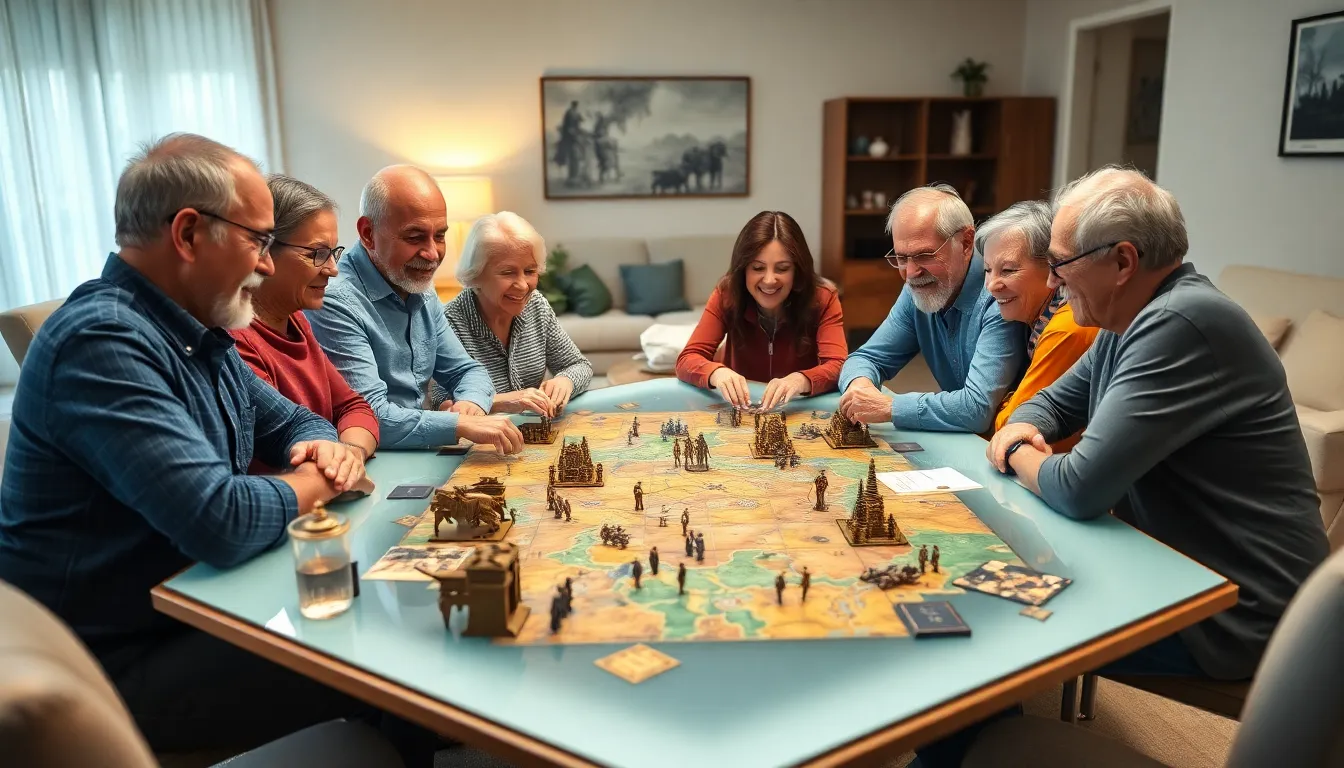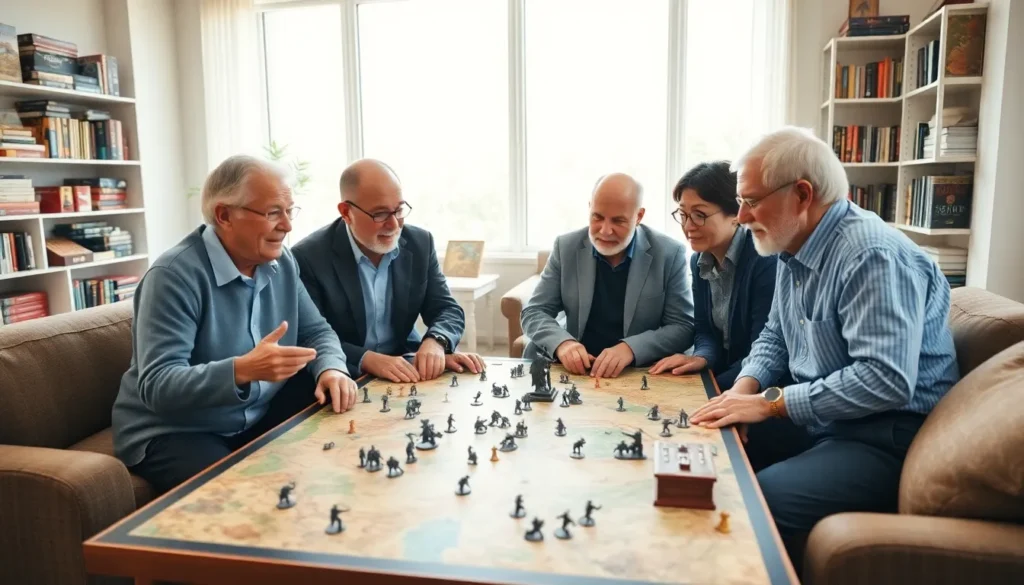Imagine a world where strategic battles and intellectual challenges come to life, right in the living rooms of our beloved elders. War games aren’t just for the young and restless: they offer a captivating escape for seniors as well. Welcome to the realm of gaming where age knows no bounds and excitement reigns supreme. Let’s investigate deep into the world of war games and discover why they’re becoming an increasingly popular pastime for older adults, sprinkled with a touch of humor to keep things light, yet professional. After all, who says gaming can’t be a little fun?
Table of Contents
ToggleUnderstanding the Appeal of War Games for Seniors

War games, especially those suited for seniors, blend strategy, creativity, and engagement, creating an appealing concoction that draws many older adults in. With life’s pace slowing down, the thrill of commanding troops or planning tactics provides a perfect distraction from the intense mundanity of daily chores like reorganizing the sock drawer.
They offer an escape into a world where strategizing over enemy positions can feel just as thrilling as a cup of morning coffee. Not only do these games allow elders to reminisce about their younger days, but they also stimulate their minds, helping keep cognitive decline at bay. So, whether they’re reminiscing about past battles or engaging in new ones, the excitement is palpable. Looking at it this way, who wouldn’t want to jump back into a world of strategic command?
Types of War Games Suitable for Older Adults
War games come in various formats, providing something for everyone. Here’s a breakdown of several engaging types tailored for senior gamers:
Tabletop War Games
These involve physical boards and miniature figures. Tabletop games often spark nostalgia while bringing a social element into play. Games like Warhammer allow for creativity with strategy, while the tactile experience enhances cognitive and motor skills.
Video War Games
For a bit of technology-infused fun, many seniors are embracing video games. Titles like Civilization VI engage players in global strategies, prompting mental engagement alongside visuals that dazzle.
Card Games
Don’t underestimate the allure of a high-stakes card game. War-themed card games, such as Wings of Glory, combine existing interests with exciting mechanics that keep players involved and invested.
Cooperative War Games
These emphasize teamwork, allowing players to strategize together, rather than against each other. Building alliances in games like Pandemic, while fending off enemies, introduces a collaborative spirit among players.
In all these forms, playing war games offers endless enjoyment, ensuring that seniors can not only engage their minds but also enhance their enjoyment of time spent with friends.
Choosing the Right War Games for Seniors
Not all war games are created equal. Selecting the right game can make or break the experience for older adults. Consider these factors:
- Complexity Level: Opt for games with straightforward rules that don’t require a degree in rocket science to understand. Too many rules can be overwhelming.
- Time Commitment: Some seniors prefer shorter games, while others relish deeper dives into strategy that take a few hours. Knowing their preference in time will enhance enjoyment.
- Theme: Align the game’s theme with their interests. If they’re fans of history, games based around historical events might foster more enthusiasm.
- Accessibility: Ensure the components are user-friendly. Larger cards, easy-to-read text, and simple setup can help avoid frustration.
- Social Interaction: Choose games that promote group play. Whether it’s inviting friends over or organizing a community game day, fostering social bonds is key.
Tips for Introducing War Games to Seniors
Getting seniors started with war games can feel like gearing up for a military campaign, but with the right strategy, it can be a smooth operation. Here are some tips:
- Start Small: Begin with a simple, engaging game that doesn’t overwhelm. Let them grasp the concept and rules before moving on to more complex ones.
- Encourage Participation: Capture their interest by engaging in the storytelling aspect of the game. Relate it to their experiences to ignite enthusiasm.
- Be Patient: Understand that learning a new game might take some time. Patience is vital in this process, both for the seniors and the introducer.
- Create a Routine: Establish a weekly gaming session to cultivate anticipation and excitement. Like a book club, it gives something to look forward to.
- Include Friends and Family: Gamify the experience by including other relatives and friends. A lively group atmosphere can elevate the enjoyment immensely.





